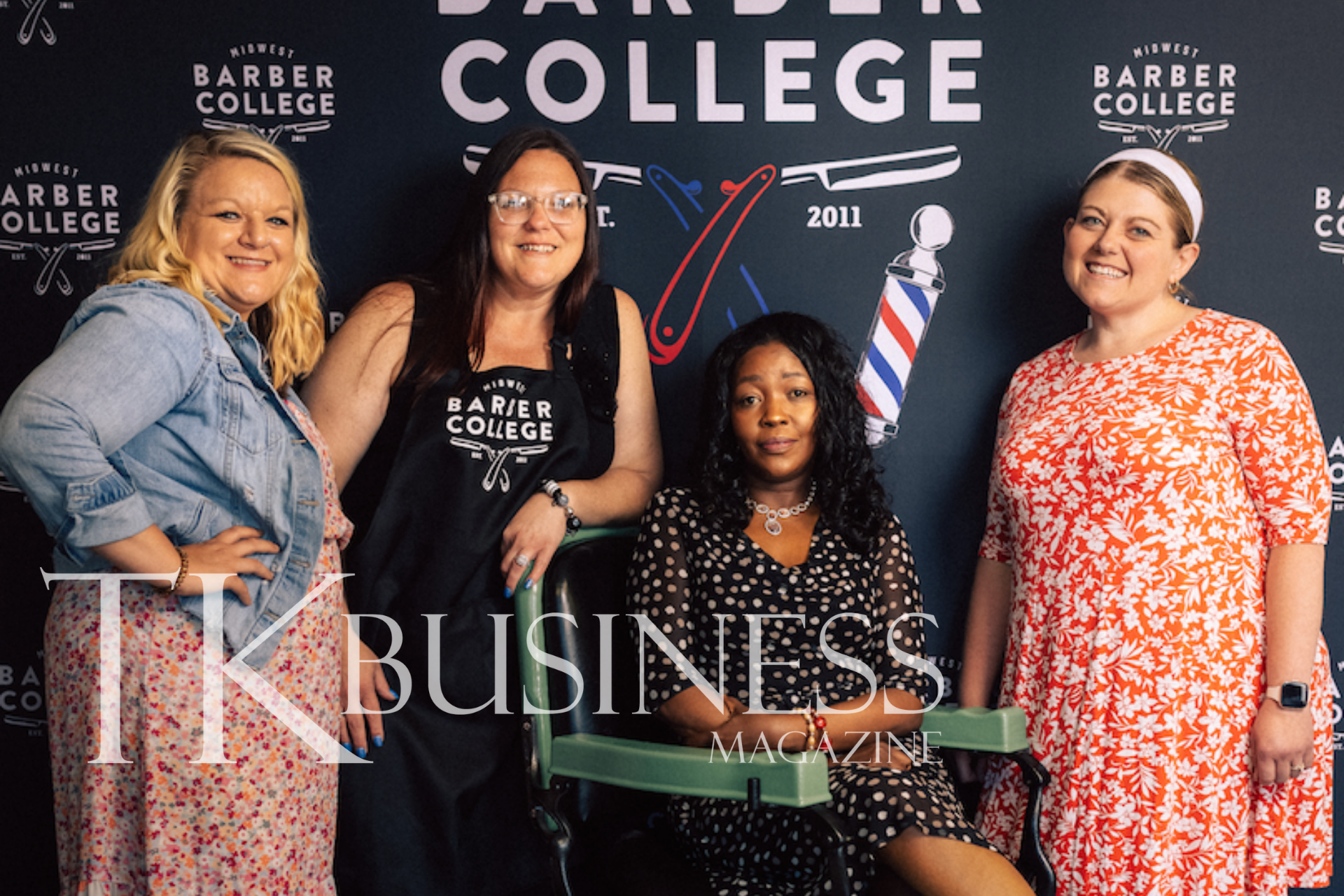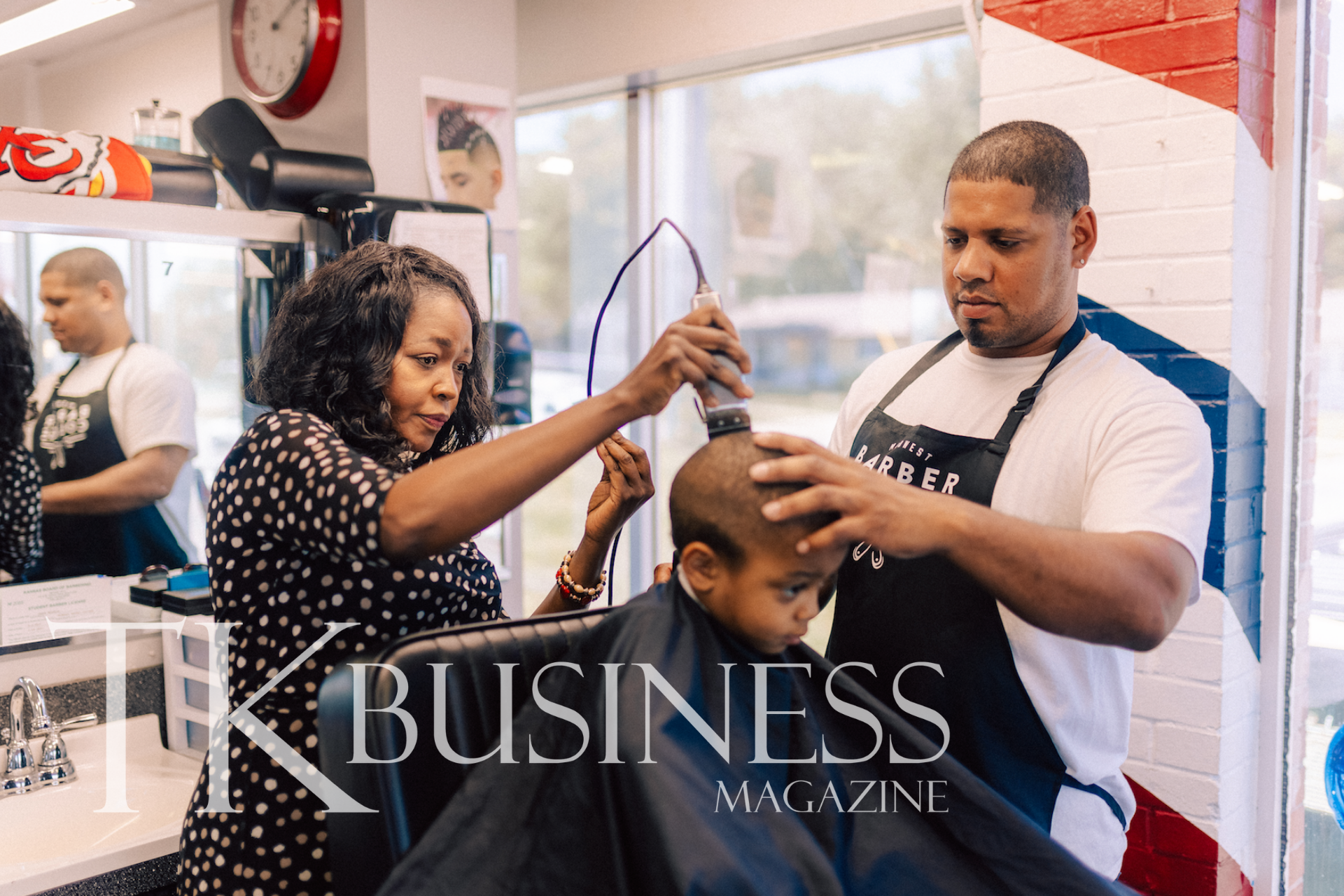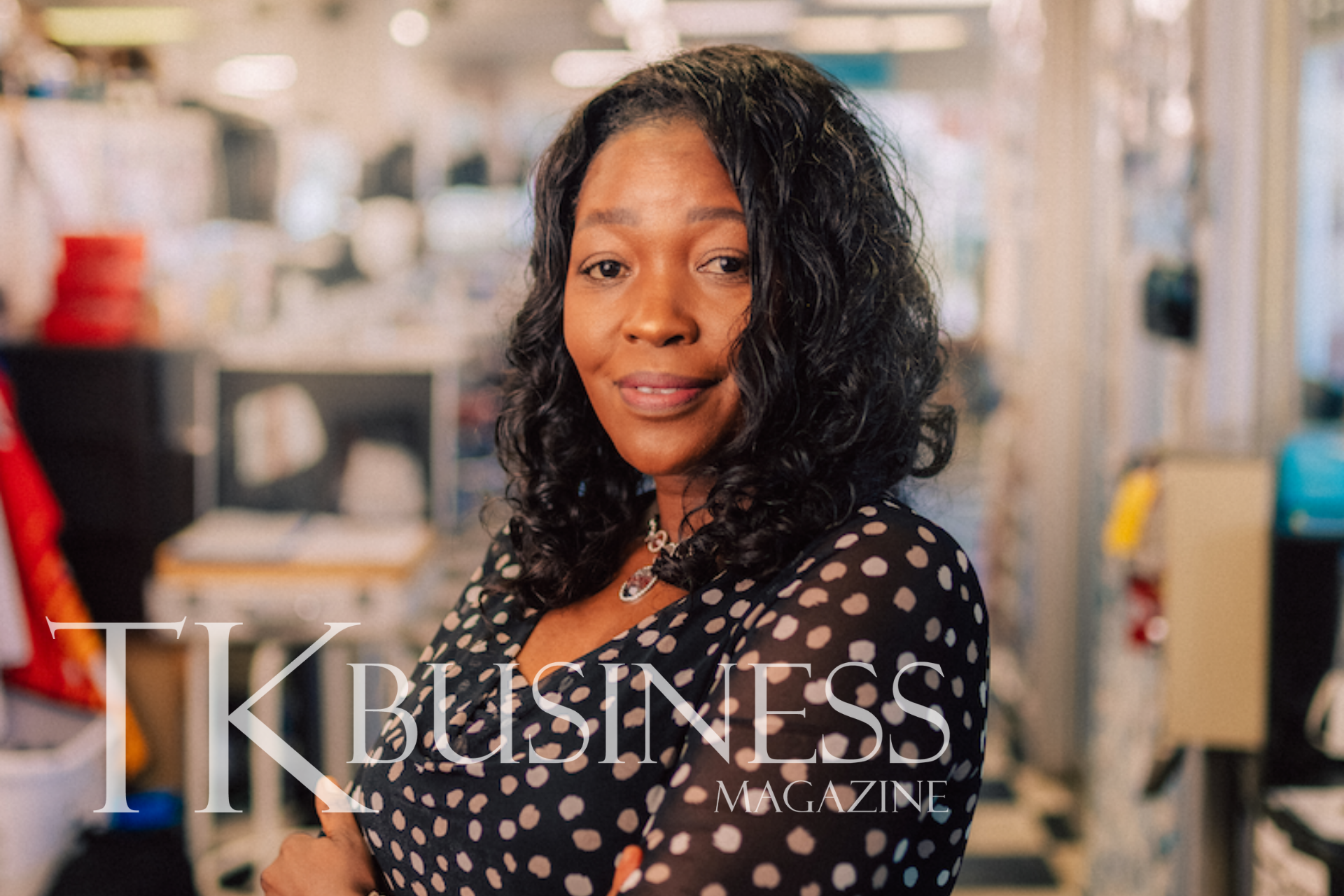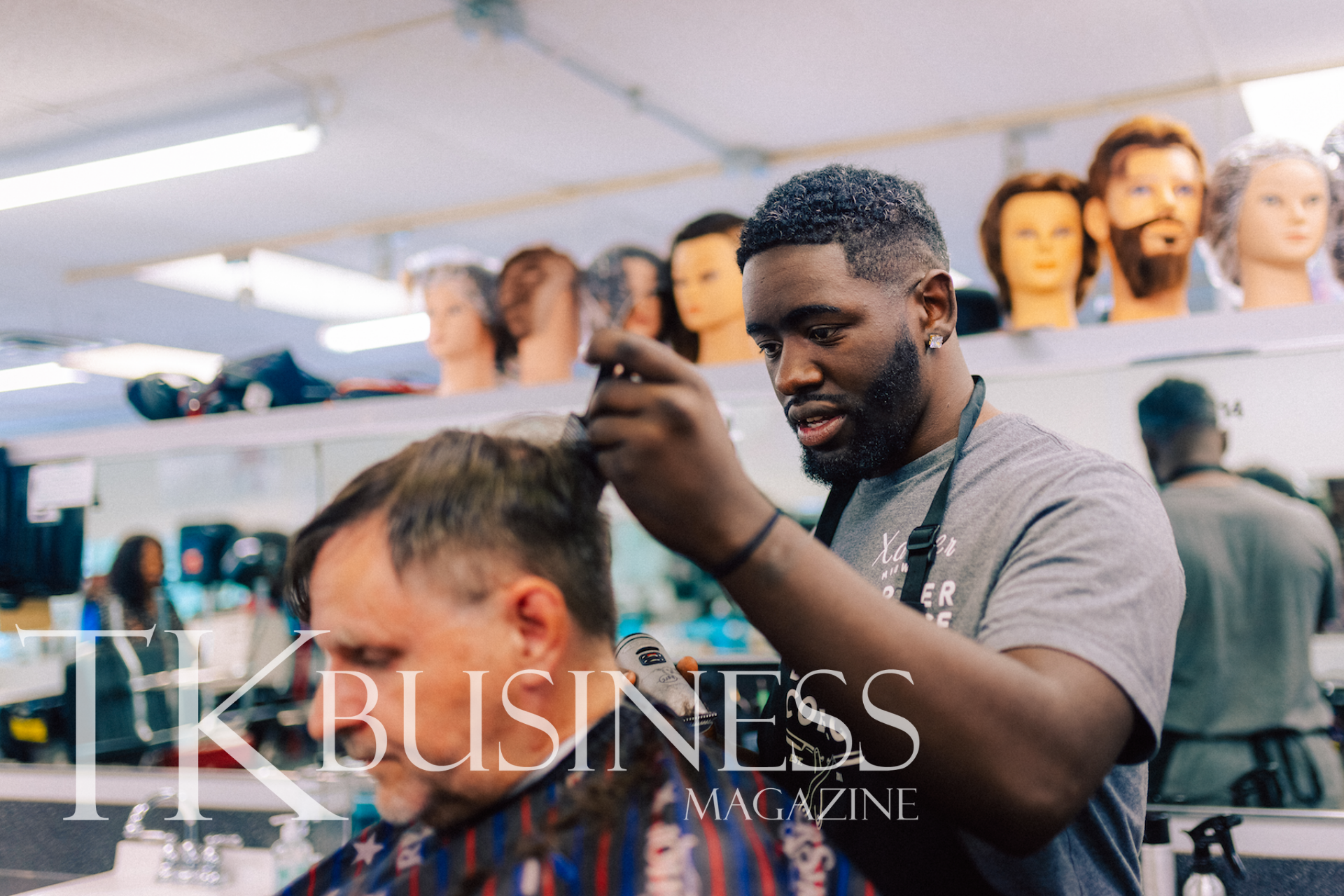Working with Hair: Midwest Barber College
Photos by John Burns
Growing up, Lucy Opit spent her free time braiding blades of grass and corn tassels in a rural farming community in Nanyuki, Kenya.
“We didn’t have toys,” she said. “Our toys were whatever we could find in the environment.”
As a teen, she began braiding the hair of her boarding school classmates, unaware that she was progressively fashioning a skill set that would evolve into ownership of a barber college on another continent.
Opit taught preschool in Canada while her husband pursued a master’s degree there. When he attended Kansas State University to earn his doctorate degree, Opit realized she could make more money in a salon than she could in a classroom.
She braided hair at a Manhattan salon in Aggieville and cultivated a loyal clientele. In 2003, she opened the first hair braiding salon in Junction City, becoming so busy that she often found herself braiding hair until 2:00 in the morning. The barber she employed was inundated with business from the Fort Riley army base since he was the only one cutting ethnic hair. Opit, intrigued, decided she wanted to become a barber too.
But at the time, the only barber schools in Kansas were in Wichita and Kansas City, too far for Opit to commute to while taking care of a son and a business. In the meantime, she bided her time and in 2004 began braiding hair for Topeka clients one day a week at Fairlawn Plaza to keep up with area demand.
When Midwest Barber College opened in 2011, Opit was among the first students to enroll.
“By this time, I’d opened a second shop in Manhattan, so between work and school and family, I was really busy,” she said. “I was fortunate to have a very good support system.”
When Midwest Barber College announced its imminent closure in 2015, Opit used settlement money from her recent separation to buy the school she’d grown to love.
“I couldn’t let the school close,” she said. “Where would the students go? What would the clients do? I decided to just buy it. It hasn’t been easy but it’s been a blessing.”
Opit is the first Black woman to own an accredited barber school in Kansas. To achieve accreditation in 2018, Opit had to hit a 60 percent graduation rate and a 70 percent licensure rate for graduates two years in a row.
Today the college employs three full-time instructors in addition to Opit, an admissions officer, a financial aid officer and apprentices wanting to become instructors. The school has 35 students, each of whom completes 1,500 hours of training. To accommodate working students, the school offers three schedules—9 a.m. to 3 p.m., 1 to 7 p.m. and 4 to 8 p.m. The college has open enrollment with classes starting every first Tuesday of the month. The school also accepts federal financial aid, GI Bill and vocational rehabilitation students.
Opit said barbering is still primarily a male-dominated business but she’s seeing more interest from female cosmetology graduates. The college offers a 500-hour crossover program for licensed cosmetologists interested in expanding their skills and potentially opening their own barber shops.
Opit said 100 percent of her graduates are employed when they finish the program and collectively account for about 60 percent of barbers in Junction City, Lawrence and Topeka. “Not everyone is meant for college,” she said. “Barbers can be their own boss and on average earn $1,000 a week or more without taking on a lot of debt. A skilled barber willing to put in the hours and the effort can make $80,000 to $100,000.”
Working with hair has been a lifelong passion for Opit, who appreciates the power of appearance.
“Women can put their hair in a ponytail and put on lipstick and heels to feel attractive, but for men, a haircut can make such a difference in how they feel about themselves,” she said.
The college provides traditional cut and color options but also responds to changing trends on Instagram and TikTok. For example, Justin Bieber’s dreadlocks have sparked more interest in locs and braids, Opit said.
“We provide a great service for the community. Our clients get a good deal with haircuts as low as $6. If you’re a single mom with five boys, you may not be able to afford to pay $20 to $25 for each haircut at a barber shop.”
Because the community has been supportive of the college and its students, Opit’s team returns the favor by giving free haircuts to people staying at the Topeka Rescue Mission through its “Work for Success” program, donating toys to the Boys & Girls Club and volunteering in other ways.
As of January 2021, Opit no longer cuts hair for clients, focusing her efforts instead on instructing and growing the business with her investment partner Randy Niemeier, a former client. Opit said eventually she’d like to open barber schools in Emporia, Junction City, Manhattan, Ottawa and Salina.
“Life is about personal peace of mind and happiness,” she said. “It’s gratifying to see the impact of how the college has changed people’s lives, including mine. I’m glad I took a chance.”








